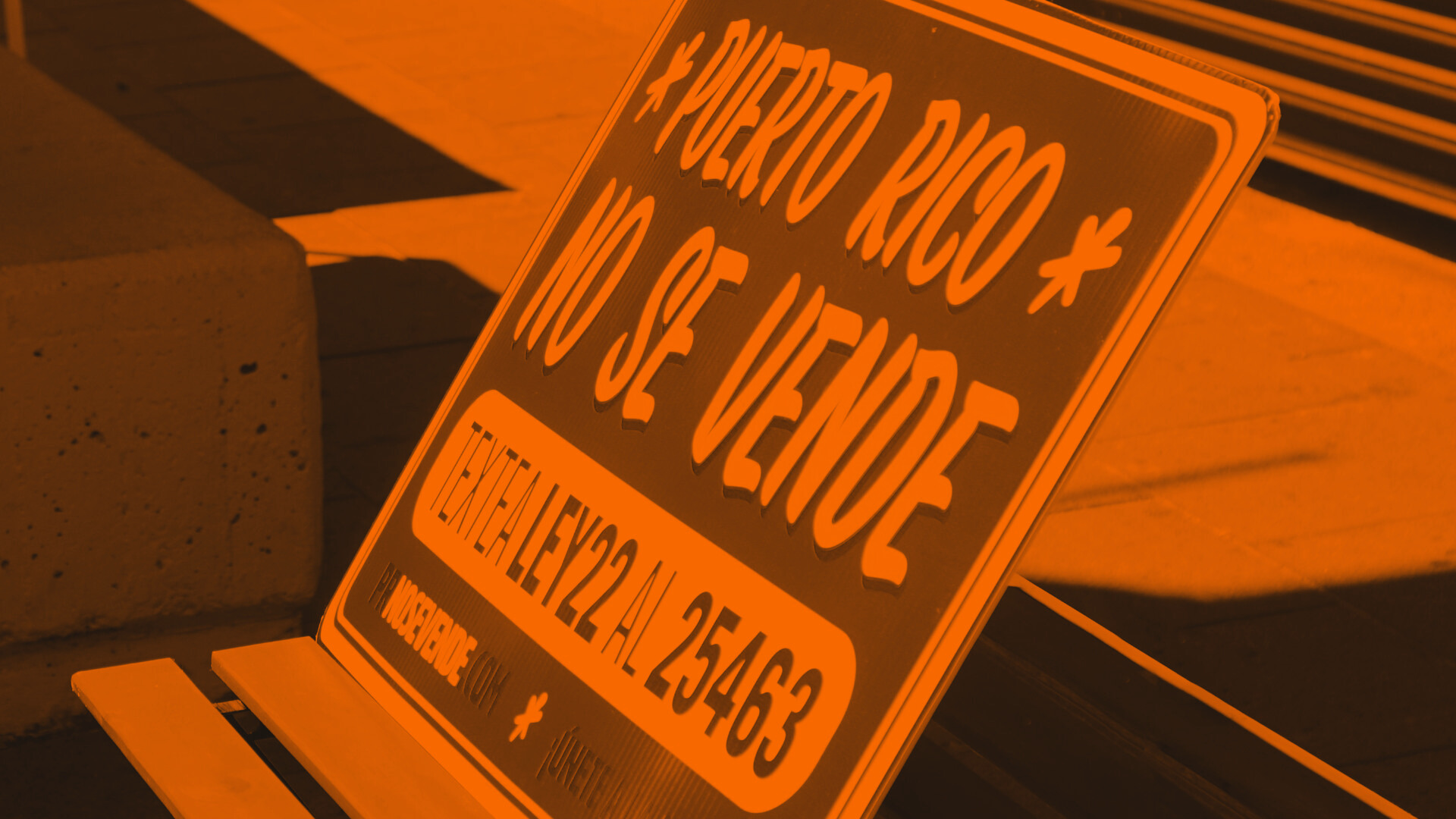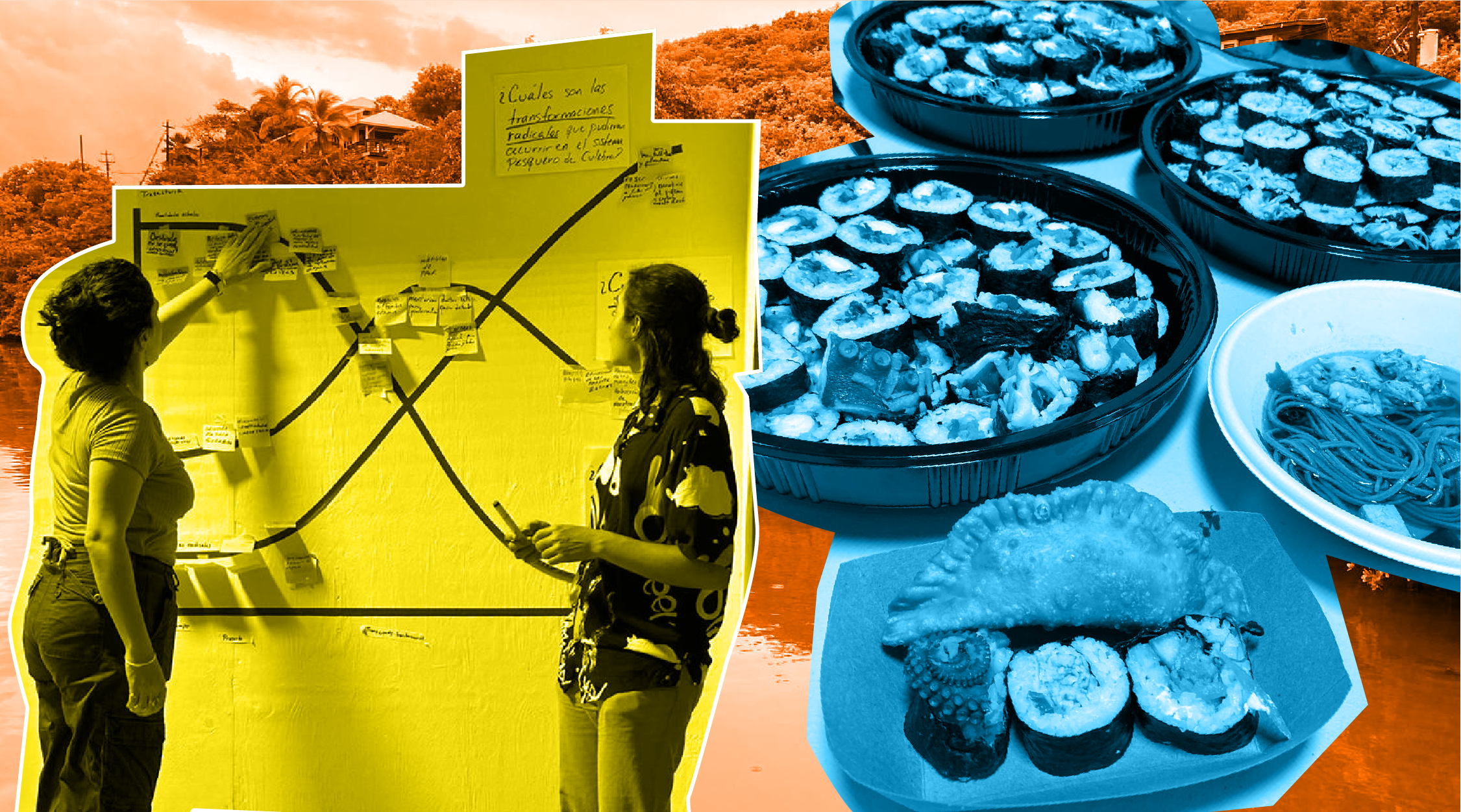
What life in Culebra shows us about access to seafood
A workshop given to residents, fishermen and short term rental owners in Culebra found that there is common ground for solving the challenges of accessing local fish
CULEBRA— Getting food in San Juan is not the same as in Culebra. The ocean and fishing are essential for feeding the people on this island municipality located east of Puerto Rico's Isla Grande, but the availability of food depends on a weak supply chain. There is not much land conditioned for farming or enough water for irrigation, and the Land Use Plan for the municipality did not designate any space exclusively for agriculture. As a result, the sea is increasingly more important as a source of food and work.
However, in both Culebra and the capital, government policies favor the tourism industry and large economic interests, which have contributed to the high cost of food and have caused other challenges, such as displacement.
The sea is a common good, which belongs to all of us who live on these islands. It contributes to the livelihood of many families, especially given the lack of access to land for farming. In addition, it is part of the identity and well-being of those who live in Culebra.
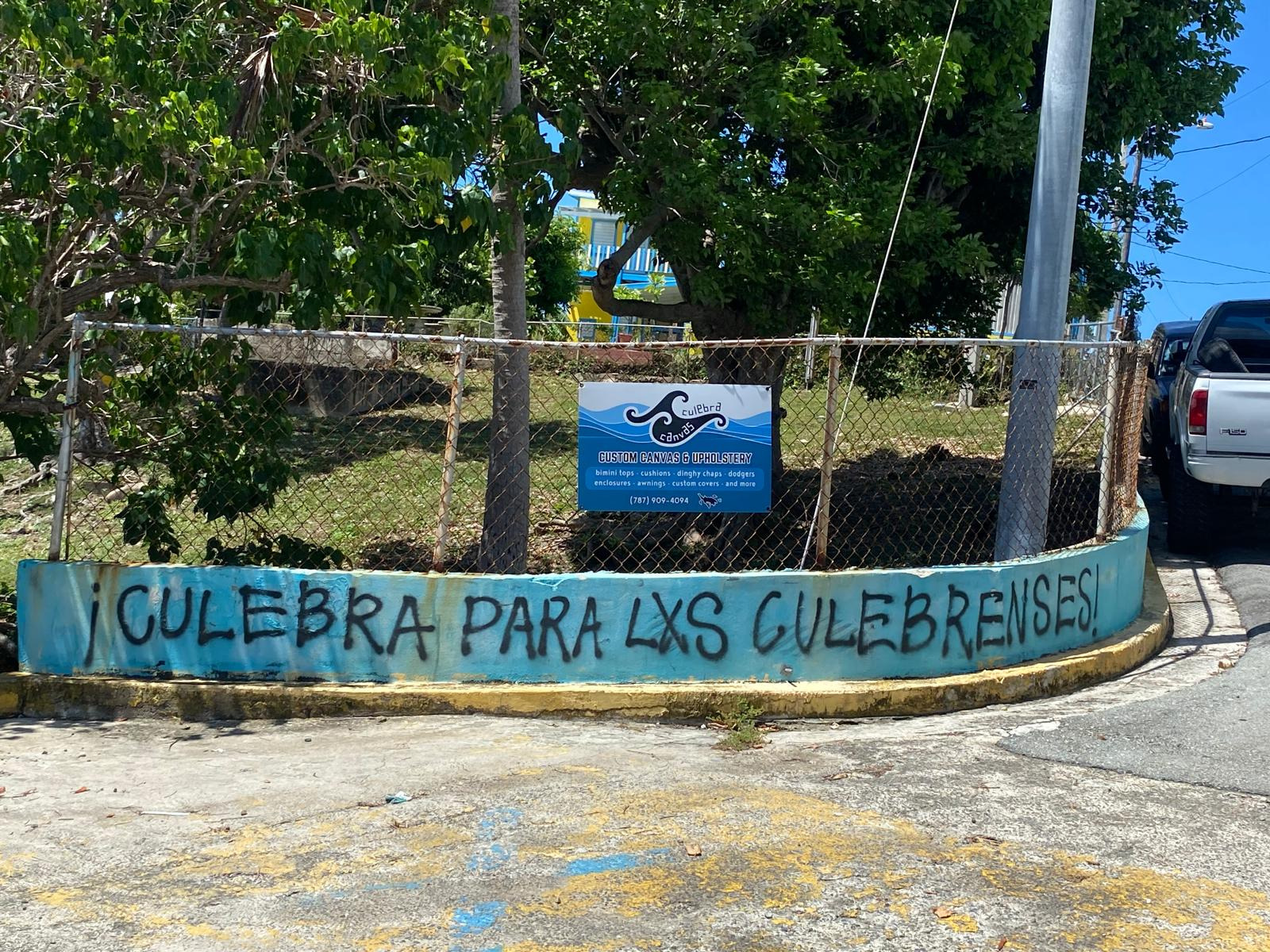
So, how do changes in infrastructure and the environment affect access to the sea? What helps or hinders residents from getting fresh seafood? And how do these factors change depending on who you are and your social conditions? Finally, what can be done so that people in Culebra can continue to buy or catch fresh fish, shellfish, and mollusks?
We were commissioned by the Culebra Fishing Association, Inc. to answer these questions through a participatory study which sought to understand what type of actions are needed to improve access to seafood in Culebra. Our genuine intention is to contribute to the conversations in other parts of Puerto Rico, such as in Río Grande, Aguadilla and Lajas, among other places, on how to better care for our public spaces.
The challenges reported by the people of Culebra
Social and economic inequalities, exacerbated by displacement and gentrification, have caused hardships for those who live in Culebra. This was emphasized by a majority of the 16 residents interviewed, including fishermen, whom we asked about their experiences with access to the sea and food security. We also discussed the changes they have seen in the Culebrense ecosystem and the factors that help or hinder their access to coastal and marine resources.
The displacement processes they referred to have been driven, in part, by unplanned tourism that ignores Culebra's territorial limitations, the well-being of its people, and the protection of its natural resources.
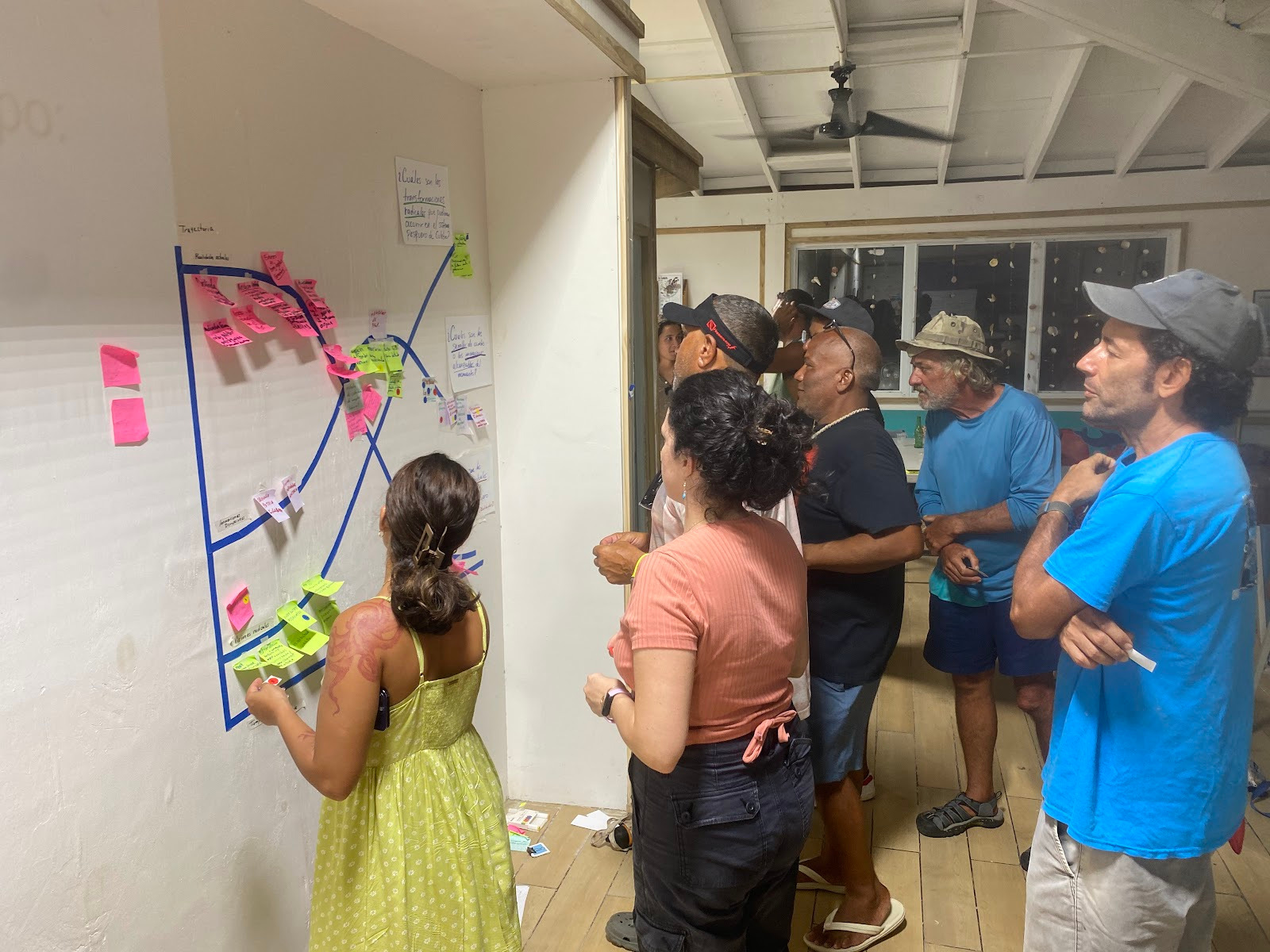
Fishing—as a craft and an identity—is vital in Culebra. It is a way of life for many Culebrenses, which goes beyond the "commercial" or "recreational". The different ways people fish or access the sea reflect a persistent vulnerability in Culebra. This was confirmed through the interviews, particularly when talking about the challenges they face to access local fisheries, ranging from regulatory issues that are not tailored to the nature of artisanal or small-scale fishing, to the lack of oversight by agencies such as the Planning Board, the Permits Management Office, and the Department of Natural and Environmental Resources, regarding illegal constructions on the coast.
The interviewees described how constructions, illegal docks, and deforestation have transformed the coastal landscape. Since Hurricane Maria, the construction of docks has increased by 62%, according to a comparative analysis of satellite images. In the spring of 2024, this study counted a total of 162 docks.
However, that number does not equate to greater use and access: only 25 docks were built on public land while 137 were on privatized land used for short-term rental properties. It is worth noting that those on public land are not in suitable conditions for proper use. In addition, all the docks are located in the maritime-terrestrial zone and in easement areas, therefore, even these private lands are public. In our analysis, we differentiate between docks that start on public land or privatized land.
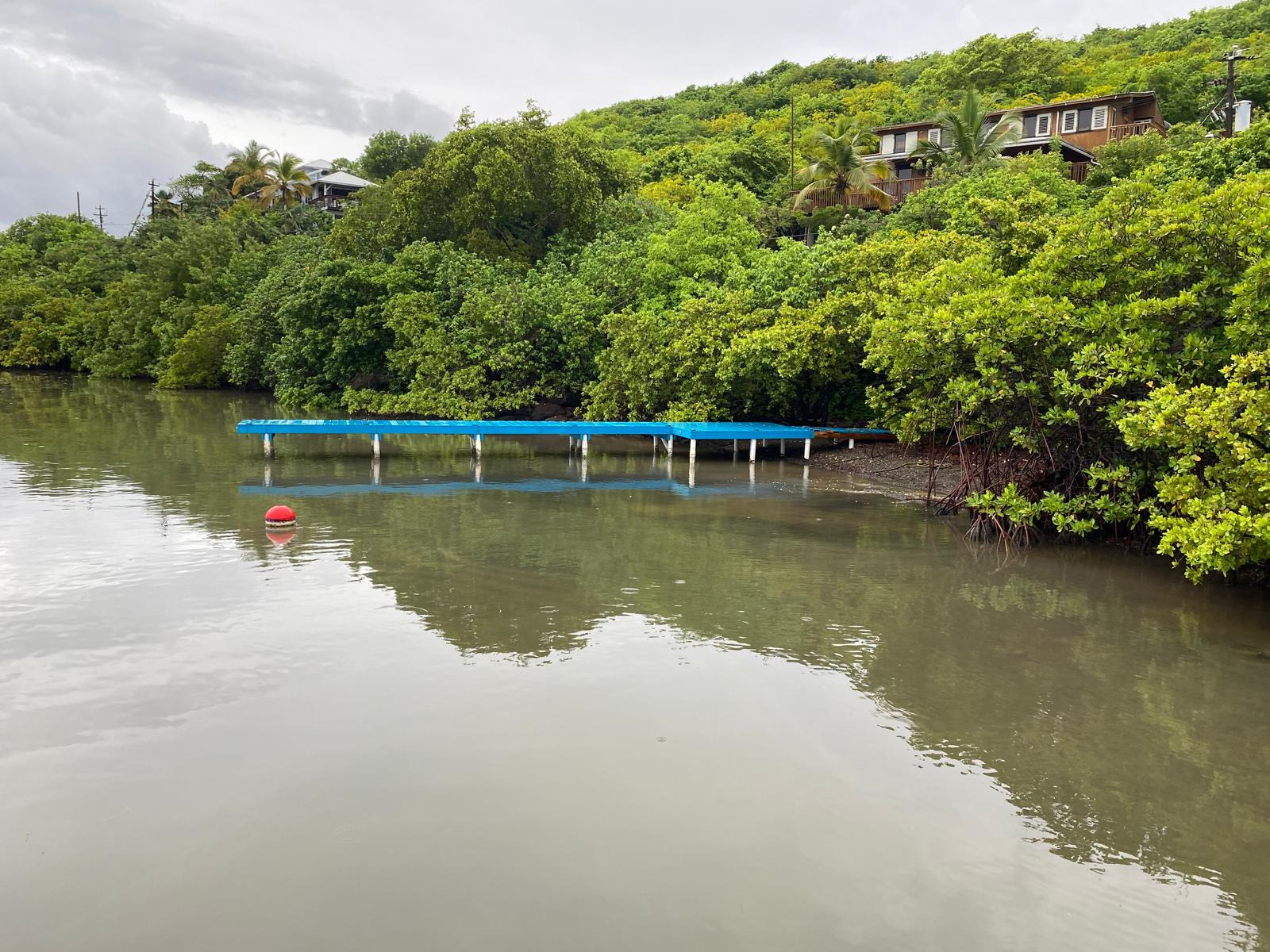
Residents, fishermen and non-fishermen agreed that access to the sea is important not only for fishing, but also for fish processing, commerce, family gatherings, and other activities.
A vision for the future
The overabundance of short-term lodging, which also contributes to the economy of the Culebrenses, was identified as a significant factor that limits access to the sea. So, which actions does the Culebrense community want to carry out to mitigate these challenges? To answer that question, 19 people participated in a structured workshop. Among them were fishermen and owners of short-term rentals, restaurants, and consumers of local fish.
At the workshop, we shared the preliminary results of the research and invited participants to actively engage in the analysis, validating and reinterpreting the findings based on their own everyday experiences. Given that the main challenges to access were already clear, we facilitated a future-oriented guided activity, in which attendees imagined scenarios of change and discussed collective strategies to address tourist gentrification and the loss of affordable housing.
This methodology, based on participatory and forward-looking approaches, opened up a space for horizontal dialogue that combined local narratives, historical memory, and innovative proposals. By doing this, the workshop not only served as an opportunity to validate the findings, but also as an exercise in collective imagination that fostered the co-creation of alternatives to the pressures of touristification.
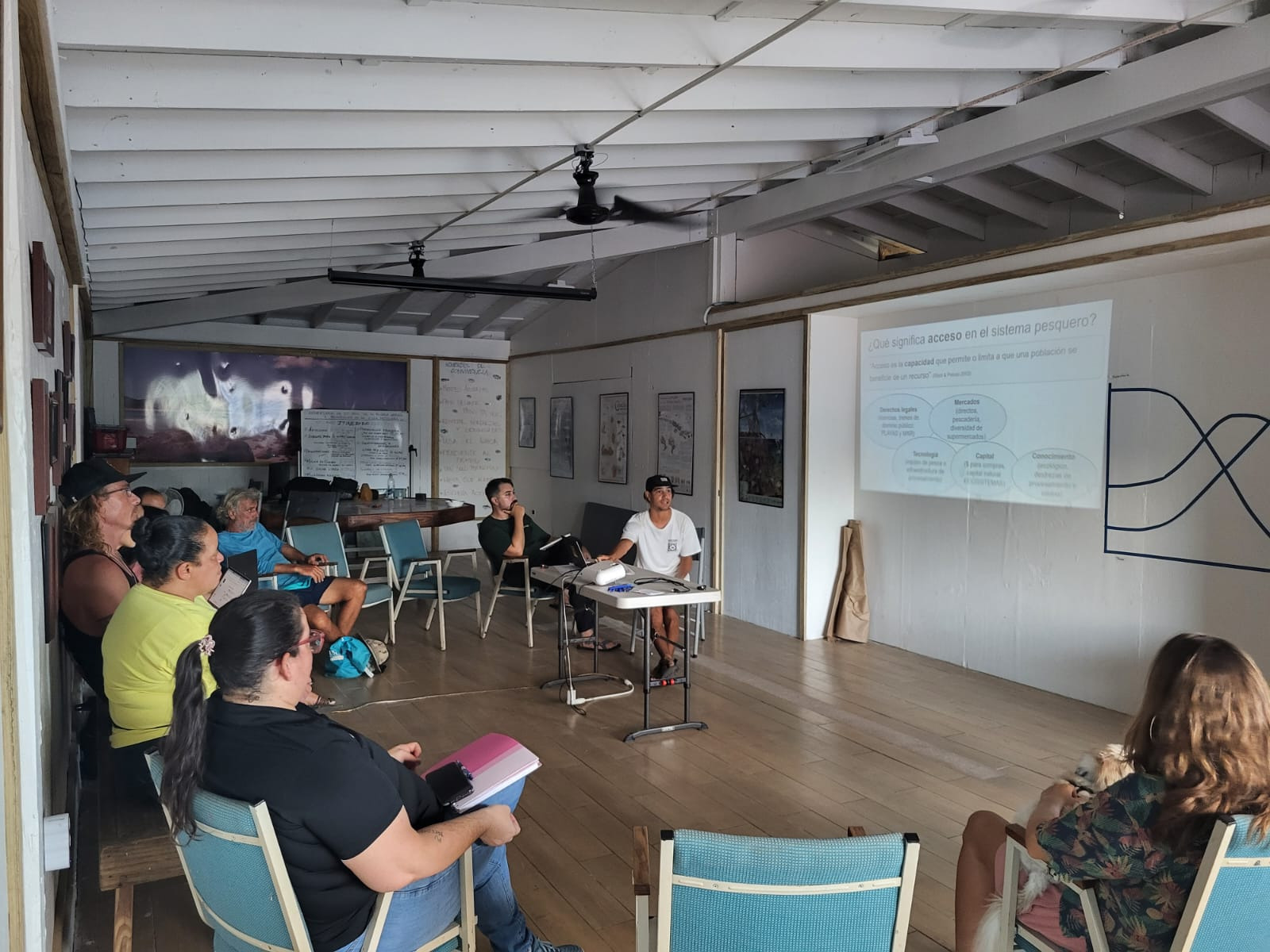
Having facilitated this activity showed the participants that there are alternative ways to encourage citizen participation in decision-making. It also allowed them to know that there is common ground in many of the ideas for solving the challenges of accessing local fish. More importantly, several of the identified action mechanisms are already being pursued, such as having a community fish market that provides resources to fishermen and that creates the adequate infrastructure to process and handle seafood caught in Culebra’s waters.
Some of the proposals that received the most support revolved around learning from the experience of other islands, such as the Canary Islands, Barbados, and St. Croix. It was also proposed to rehabilitate common natural spaces, such as Cayo Pirata, as well as promoting environmental education for children in Culebra.
In general, the proposals shared by the community can be categorized in two ways: (1) practical actions, such as the development of fishing tournaments and social activities that foster community connection; and (2) transformative and complex actions, such as transitioning to a sustainable and nature-based tourism system. Beyond agreeing on actionable items, this activity allowed the residents of Culebra to visualize and identify potential future scenarios.
Towards a safe harbor
It is possible to develop projects that are managed by and in vulnerable coastal communities. Even amid a sea of challenges, there are mechanisms—safe harbors—where to anchor. If all people in Culebra had easy access to the sea, fresh fish and shellfish, then there would be social, economic, and environmental benefits. Not only will fishermen prosper; it will also contribute to the food security of residents and the development of small businesses, such as restaurants and markets.
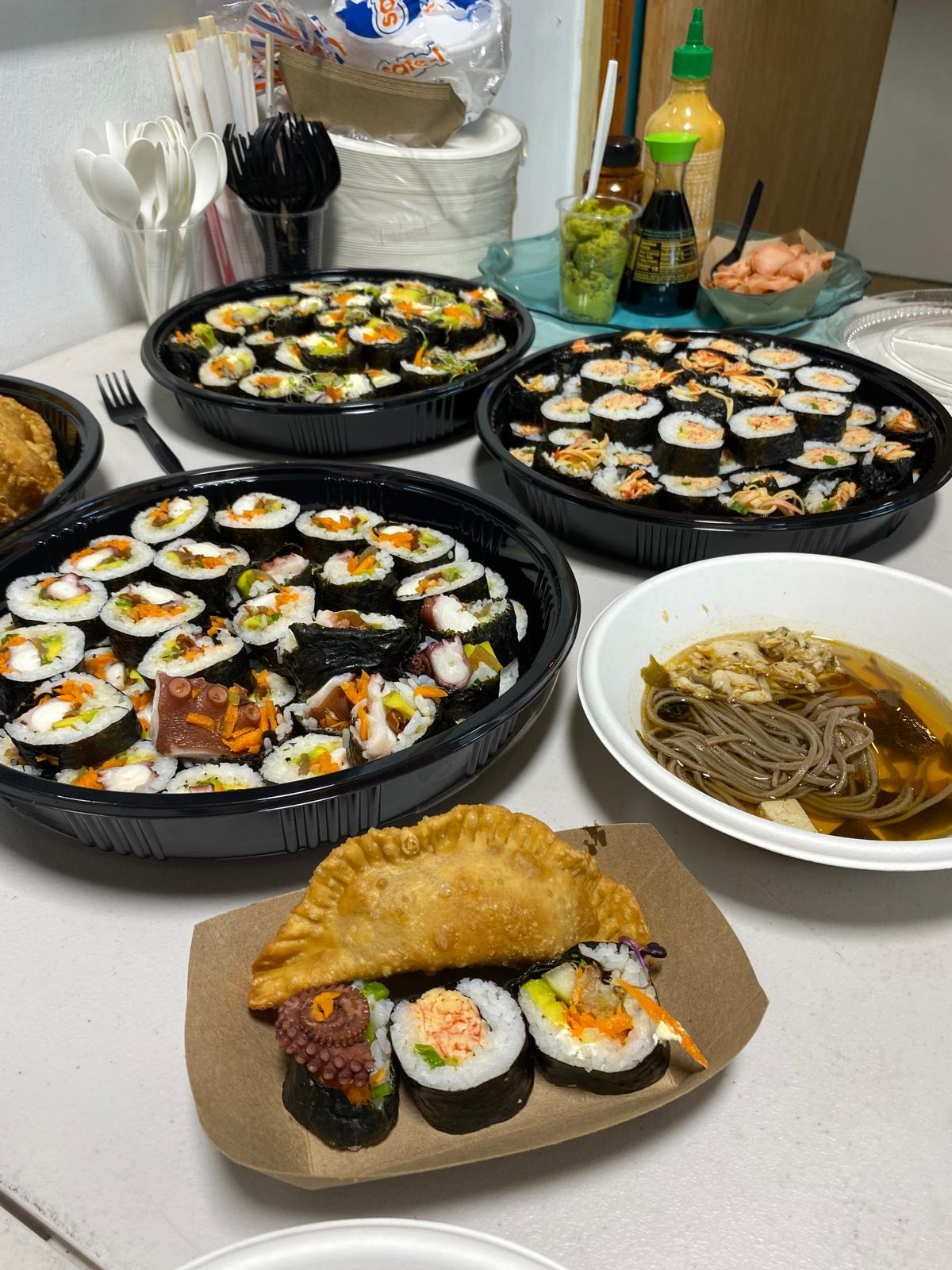
At the beginning, we asked ourselves: "What is the potential for more equitable access to fresh fish and shellfish?" To answer this, it is crucial that the challenges are understood as intertwined, and that the solutions are not decided without taking into account the knowledge of these fishing communities. Having adequate public infrastructure on the coast, while safeguarding natural resources, is of vital importance for the well-being of the community. This project is a tool to visualize and address the needs of our coastal communities, which are at risk due to gentrification and limited access to the sea and local fish.
The authors are investigators and collaborators of the Culebra Fishing Association, Inc.
This opinion piece was originally published in Fuete y Verguilla, a magazine published by Sea Grant Puerto Rico. This version was edited by 9 Millones.




